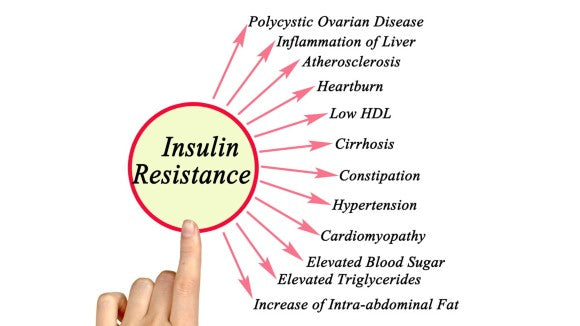Why Self-Talk Matters: Go from Self-Criticism to Self-Affirmation

Have you ever caught yourself talking to yourself? Perhaps you were replaying a conversation or trying to motivate yourself before something big in your life.
This internal dialogue, known as self-talk, can have a powerful impact on our thoughts, feelings, and behaviors.
Unfortunately, many of us engage in negative self-talk, criticizing ourselves for our mistakes, flaws, and shortcomings.
This self-criticism can lead to feelings of anxiety, depression, and low self-esteem, making it harder to achieve our goals and enjoy our lives.
The good news is that we can learn to shift our self-talk from criticism to affirmation, using positive and supportive language to boost our confidence and resilience.
In this article, we’ll explore why self-talk matters and how you can start harnessing the power of your inner voice to build a more positive and empowering relationship with yourself.
Understanding the Dangers of Self-Criticism
● Damages self-confidence and self-esteem
According to research, Individuals who experience negative self-directed emotions may be more likely to feel depressed and hurt themselves.
Thus, when you engage in negative self-talk, you are telling yourself that you are not good enough, that you are flawed, and that you are unlikely to succeed.
Over time, self-criticism erodes your confidence and self-esteem, leaving you less capable and worthy of success and happiness.
This self-criticism can harm our relationships, careers, and overall well-being.
By learning to recognize and shift your self-talk from criticism to affirmation, you can begin to build a more positive and empowering relationship with yourself, increasing your confidence and self-esteem in the process.
● Increases stress, anxiety, and depression
We have seen that when we engage in negative self-talk, we are essentially telling ourselves that we are not good enough and that we are likely to fail.
Eventually, this kind of self-criticism can be incredibly damaging to our mental health and well-being, leading to increased stress, anxiety, and depression.
By constantly focusing on our flaws and shortcomings, we create a negative filter through which we see ourselves and the world, leaving us feeling trapped and overwhelmed.
This can make it much harder to cope with the challenges of daily life, leaving us feeling drained, exhausted, and emotionally depleted.
● Creates a negative filter on how we see ourselves and the world
Engaging in negative self-talk creates a filter through which we see ourselves and the world.
This filter highlights our flaws, mistakes, and shortcomings, making us feel unworthy, inadequate, and powerless.
As a result, we may begin to see everything in a negative light, assuming the worst and expecting failure and disappointment.
This negative filter can make it difficult to see the positive aspects of ourselves and the world, leading us to miss opportunities, overlook our achievements, and underestimate our potential.
Over time, this can become a self-fulfilling prophecy, reinforcing our negative beliefs, and limiting our growth and success.
● Holds us back from growth and reaching our potential
A 2019 study found that students who recited a self-affirming statement before delivering a speech or presentation experienced lower levels of performance anxiety compared to those who did not.
This study suggests that self-affirmation techniques could be beneficial in managing anxiety levels in academic or professional settings.
Focusing on our flaws and shortcomings makes us feel unworthy and inadequate. This can hold us back from growth and reaching our potential by limiting our beliefs and reinforcing negative beliefs, leading to missed opportunities and underestimating our potential.
How To Go from Self-Criticism to Self-Affirmation
Shifting from self-criticism to self-affirmation can boost confidence, improve mental health, and help reach your full potential. Here are important tips to embrace self-affirmation.
● Monitor your thought patterns.
Monitoring your thought patterns is a crucial step to shift from self-criticism to self-affirmation. It involves paying attention to your words when speaking to yourself and noticing when negative self-talk arises.
By becoming aware of your thought patterns, you can challenge negative beliefs and replace them with positive ones.
This can help you build a more positive and empowering relationship with yourself, increasing your confidence and self-esteem.
● Talk to yourself like you would talk to your best friend
Did you know that talking to yourself in the same way that you talk to your best friend can have a positive impact on your mental health?
By shifting from self-criticism to self-affirmation and treating yourself with kindness and compassion, you can boost your confidence and self-esteem. This can ultimately lead to an improvement in your overall well-being.
● Keep an eye on your stress levels
When we experience stress, it can be easy to slip into negative self-talk and criticize ourselves.
By keeping an eye on our stress levels and proactively engaging in self-care activities such as exercise, meditation, and relaxation techniques, we can reduce stress and improve our mental health.
When we feel calmer and more centered, we are better able to shift our self-talk from criticism to affirmation, boosting our confidence and self-esteem in the process.
● Focus on Positive Aspects
Focusing on the bright side involves intentionally looking for positive aspects of yourself and your situation rather than dwelling on the negative.
This can help shift your mindset from self-criticism to self-affirmation, boosting your confidence and self-esteem.
By cultivating gratitude and appreciation for the good things in your life, you can create a more positive outlook and reduce the impact of negative self-talk.
Conclusion
In conclusion, self-talk is a powerful tool that can have a significant impact on our mental health and well-being.
Negative self-talk can harm our confidence, self-esteem, and relationships, while self-affirmation can boost our resilience, confidence, and potential.
By shifting from self-criticism to self-affirmation, we can build a more positive and empowering relationship with ourselves, improving mental health and overall well-being.
Remember to monitor your thought patterns, talk to yourself like you would talk to your best friend, and keep an eye on your stress levels to embrace self-affirmation and reach your full potential.



